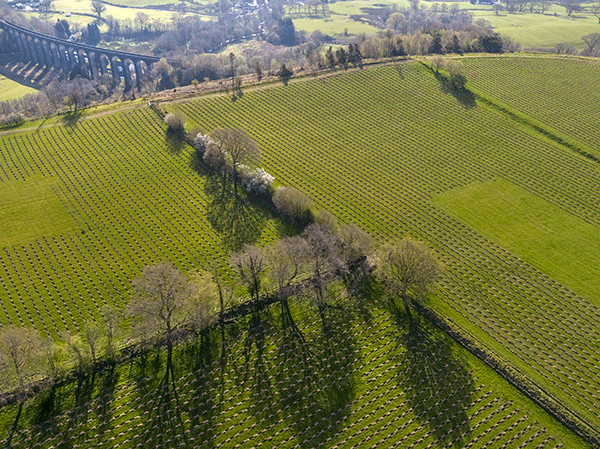People do not understand eco phrases such as net zero, carbon neutral and regenerative farming despite their increasing use, a new study has found.
Commissioned by organic dairy brand Yeo Valley, the study of 2,000 adults found that while many use terms like ‘green’, ‘eco friendly’ and ‘sustainability’ every day, almost two thirds of us don’t completely understand them.
The study ranked 38 common ‘green’ words in order of what percentage of people said they understood them, with ‘recycle’ (36 per cent), ‘climate change’ (28 per cent) and ‘global warming’ (21 per cent).
At the other end, ‘regenerative farming’, ‘biomass’, ‘agroforestry’ and ‘natural capital’ were joint bottom of the list with only three per cent of respondents saying they understood them. Similarly low ranking were carbon phrases such as carbon sequestration zero carbon, carbon credits, carbon offsetting and net zero (four per cent).
Ranking towards the top of the list was ‘energy efficient’ (19 per cent), ‘organic’ (18 per cent) and ‘renewable energy’ (15 per cent).
Overall, the study found that 73 per cent respondents think there are too many eco-related words, which makes it difficult to differentiate the meanings.
As a result, 79 per cent think these buzzwords should be shared in layman’s terms to help more people understand.
“What has become known as ‘ecolinguistics’ is a powerful tool in fighting climate change – our understanding of its vocabulary and the stories it tells determine how we feel about our planet and its future,” said Susie Dent, lexicographer on Channel 4’s Countdown.
“Our children are immersed in the language of sustainability: to them, words like ‘regenerative’ will be as normal as ‘recycling’ has become to us.
“But as adults we too can increase our understanding and involvement, by exploring and decoding the language of the environment and, crucially, its application to our daily lives.”
It comes ahead of a growing raft of ‘net zero’ initiatives by businesses and governments, as leaders attempt to meet pledges to drastically reduce carbon initiatives ahead of the UK hosting pivotal global climate talks in Glasgow this November.

‘Net zero’ refers to a balance achieved when the amount of greenhouse gases we emit is equalled by the amount we remove. This is typically done by first reducing emissions, and then offsetting the remainder.
This can also be referred to as ‘carbon neutral’, while ‘zero emissions’ and ‘zero carbon’ usually mean that no emissions were produced in the first place, according to the National Grid.
As farming is a key contributor to greenhouse gases, land use and farming systems have also joined the eco language debate. One phrase, regenerative farming, has become increasingly widespread, referring to a non regulated definition for mainstream farming that restores the soil, reduces pesticide use and focuses on nature.















Ecoburbling – gobbledegook produced by large companies and others (including so called “Green” campaigners) who wish to lie and deceive the so called “man in the street” into believing that what they are saying is good! Sadly mostly “Good for nothing”!
to me “Net Zero” means there’s nothing in the net ~ no fish today!
the Wakrus
Walrus is right.
Net Zero is not a green term, it originated from the fossil fuel industry who led all the politicians they lobbied and whose advisory boards they sat on that the solution to climate change and reducing the amount of CO2 emissions getting into the atmosphere was to install carbon capture tech on everything.
Hence they planned to emit 50 Gigatonnes of CO2 from burning fossil fuels through 2050 and beyond, while then capturing 50 Gigatonnes of CO2 with carbon capture. Net result: zero emissions.
Anyone who knows how many Gigatonnes of CO2 is captured by the fossil fuel industry today despite a decade or more of trying will recognise the 6 foot pile of cow manure for what it is. Anyone who doesn’t should search online for “Juice Media carbon capture” for an entertaining run-down.